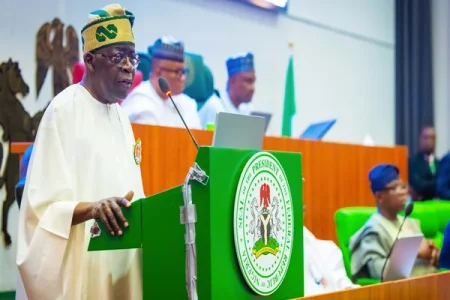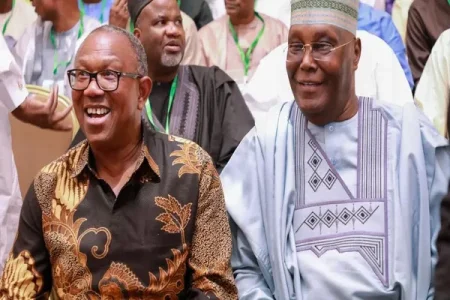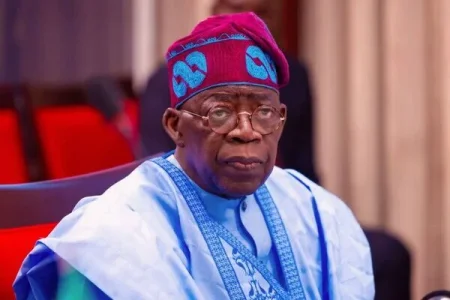
President Tinubu’s 2025 budget speech highlights a focus on security, infrastructure, education, health, and economic reforms. Dubbed the "Restoration Budget," it sets ambitious targets for growth, reduced inflation, and increased revenue. Key allocations prioritize national security, youth empowerment, food security, and robust investments in the healthcare and education sectors.
President Bola Ahmed Tinubu presented the 2025 Budget to the National Assembly, titled “The Restoration Budget: Securing Peace, Rebuilding Prosperity.” The budget outlines ambitious measures aimed at stabilizing Nigeria’s economy, addressing critical challenges, and paving the way for sustainable growth. Below are the ten major highlights:
1. Budget Overview and Projections: The 2025 Budget proposes ₦47.90 trillion in total expenditure, with expected revenue of ₦34.82 trillion. The budget deficit of ₦13.08 trillion (3.89% of GDP) reflects the government’s commitment to funding critical reforms and projects.
2. Macroeconomic Targets: The government aims to reduce inflation from 34.6% to 15%, stabilize the naira at ₦1,500/$1, and achieve a crude oil production benchmark of 2.06 million barrels per day. These projections are supported by increased exports and reduced petroleum imports.
3. Economic Growth and Resilience: Nigeria’s economy grew by 3.46% in Q3 2024, up from 2.54% in 2023. Foreign reserves reached $42 billion, while trade surplus improved to ₦5.8 trillion, reflecting the positive impact of policy reforms.
4. Defence and Security Investment: Security remains a priority, with ₦4.91 trillion allocated to bolster the military, police, and paramilitary forces. This funding aims to combat insurgency, banditry, and other security threats, ensuring nationwide safety.
5. Infrastructure Development: A total of ₦4.06 trillion has been earmarked for infrastructure, including projects like the Lagos-Calabar Coastal Highway and Sokoto-Badagry Highway. The Renewed Hope Infrastructure Development Fund will drive energy, transportation, and public works projects.
6. Education Sector Boost: The government plans to invest ₦826.90 billion in education infrastructure, covering Universal Basic Education and nine new higher institutions. Over ₦34 billion has already been disbursed to 300,000 students through the Nigeria Education Loan Fund.
7. Healthcare Advancements: The health sector will receive ₦402 billion for infrastructure and ₦282.65 billion for the Basic Health Care Fund, supporting Universal Health Coverage initiatives and improving access to quality healthcare across Nigeria.
8. Agriculture and Food Security: The budget focuses on supporting farmers with funding, inputs, and enhanced security To address food security challenges, The goal is to boost agricultural productivity and reduce reliance on food imports.
9. Revenue Performance in 2024: In 2024, Nigeria achieved ₦14.55 trillion in revenue, meeting 75% of the target, and ₦21.60 trillion in expenditures, representing 85% of the budget. These results highlight progress in revenue collection and spending efficiency.
10. Commitment to Reforms and Growth: The budget underscores the administration’s dedication to the Renewed Hope Agenda, focusing on macroeconomic stability, business environment improvements, and inclusive growth. It calls for collaboration across sectors to overcome challenges and achieve sustainable development.
President Tinubu concluded by emphasizing the importance of collective action to rewrite Nigeria’s narrative and build a nation where every citizen can thrive.




